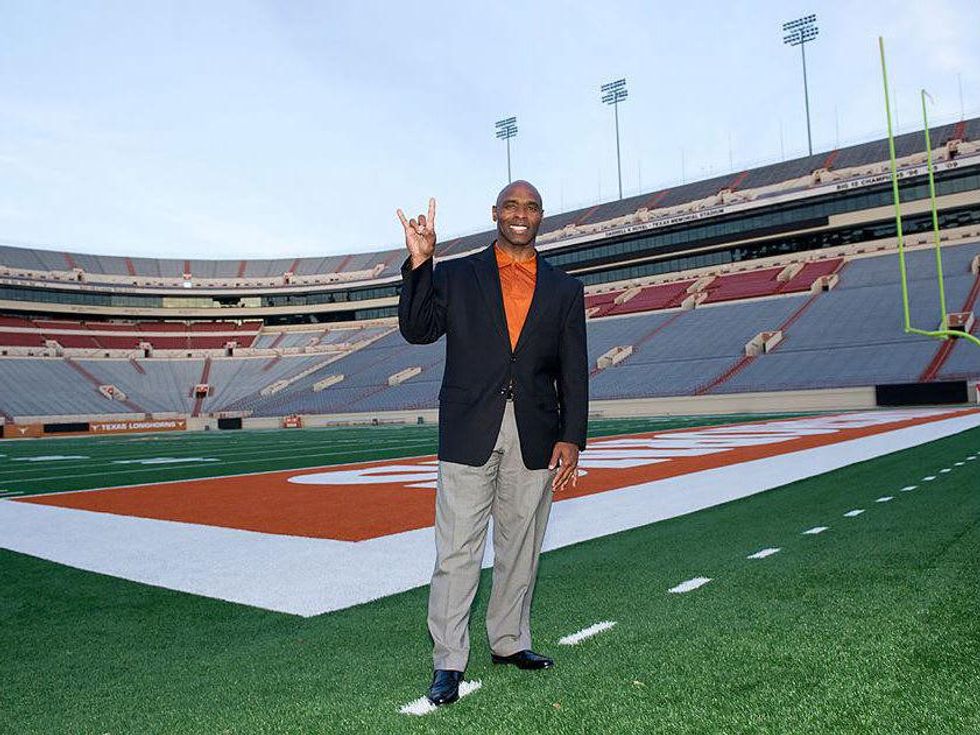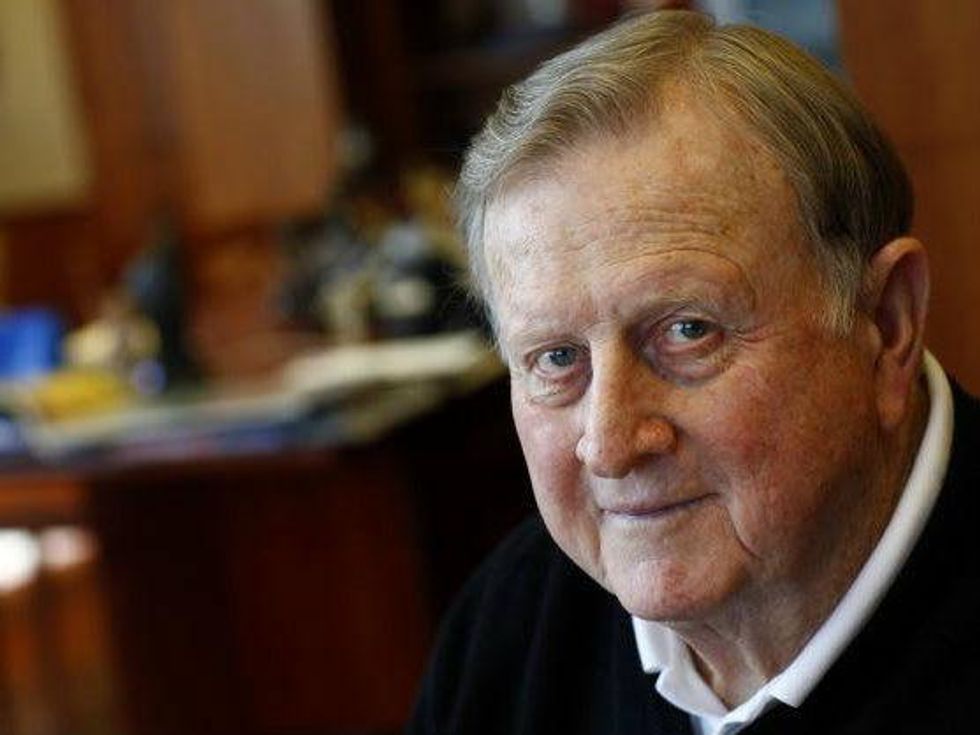McCombs Apology
Red in the face: McCombs apology for Strong comments doesn't address racial context
After facing public criticism over his comments regarding the hiring of Charlie Strong — UT’s first African-American head coach — billionaire university benefactor Billy Joe “Red” McCombs has apologized to both Strong and fans who took issue with his harsh remarks.
In an interview with the San Antonio Express-News, McCombs expressed regret over some of his blunt language.
“I wanted to apologize to anybody that might have been offended by anything that I said or did,” said McCombs in the interview in his office near downtown San Antonio. McCombs also stated that he had lengthy telephone conversation with Strong, who told McCombs that he didn’t need any apology.
McCombs, as well as his supporters, should not be so quick to balk at people’s assumptions that there was a racial subtext to his comments.
“He wanted my help, and he wanted my support, and he hoped that I would be giving him that, and I was delighted to tell him that I would be happy to do it.”
A Texas alum who has donated millions to the university, McCombs earlier described the process of hiring Strong as a “kick in the face” in a radio interview for ESPN 1250 San Antonio. However, perhaps his harshest criticism was that he thought Strong would have fit better as a position coach or a coordinator, despite Strong’s successful record as a head coach in his time at Louisville.
In the interview, McCombs acknowledged that he was aware that the backlash to his comments had a racial component. Asked if such comments were hurtful, McCombs said, “Well of course. … I’m not even sure I even knew about the race issue until it was broadcast like this.”
McCombs said that he was even contacted and offered support by John Lucas, who was hired as the head coach of the San Antonio Spurs when McCombs was the team owner.
The apology is more than welcome, but McCombs, as well as his supporters, should not be so quick to balk at people’s assumptions that there was a racial subtext to his comments. They need to remember the context into which Strong comes to the Forty Acres.
The university has experienced its fair share of issues involving race, most recently with events such as the race and gender discrimination lawsuit brought by former women’s track coach Bev Kearney (UT's first, and until Strong's hire, only African-American coach) or the affirmative action lawsuit involving Abigail Fisher.
With Strong’s hiring, it seems UT is taking a determined step to remedy the wrongs of the distant and recent past. But to hear someone in an influential position say that a black man with excellent qualifications for the head-coaching job be relegated to a less prominent role was about as disheartening as ever.
It’s fine to debate whether Strong will achieve success at Texas, but boosters from bygone eras must realize that, in order for Texas to start changing the world, it needs to continue changing itself for the better.


